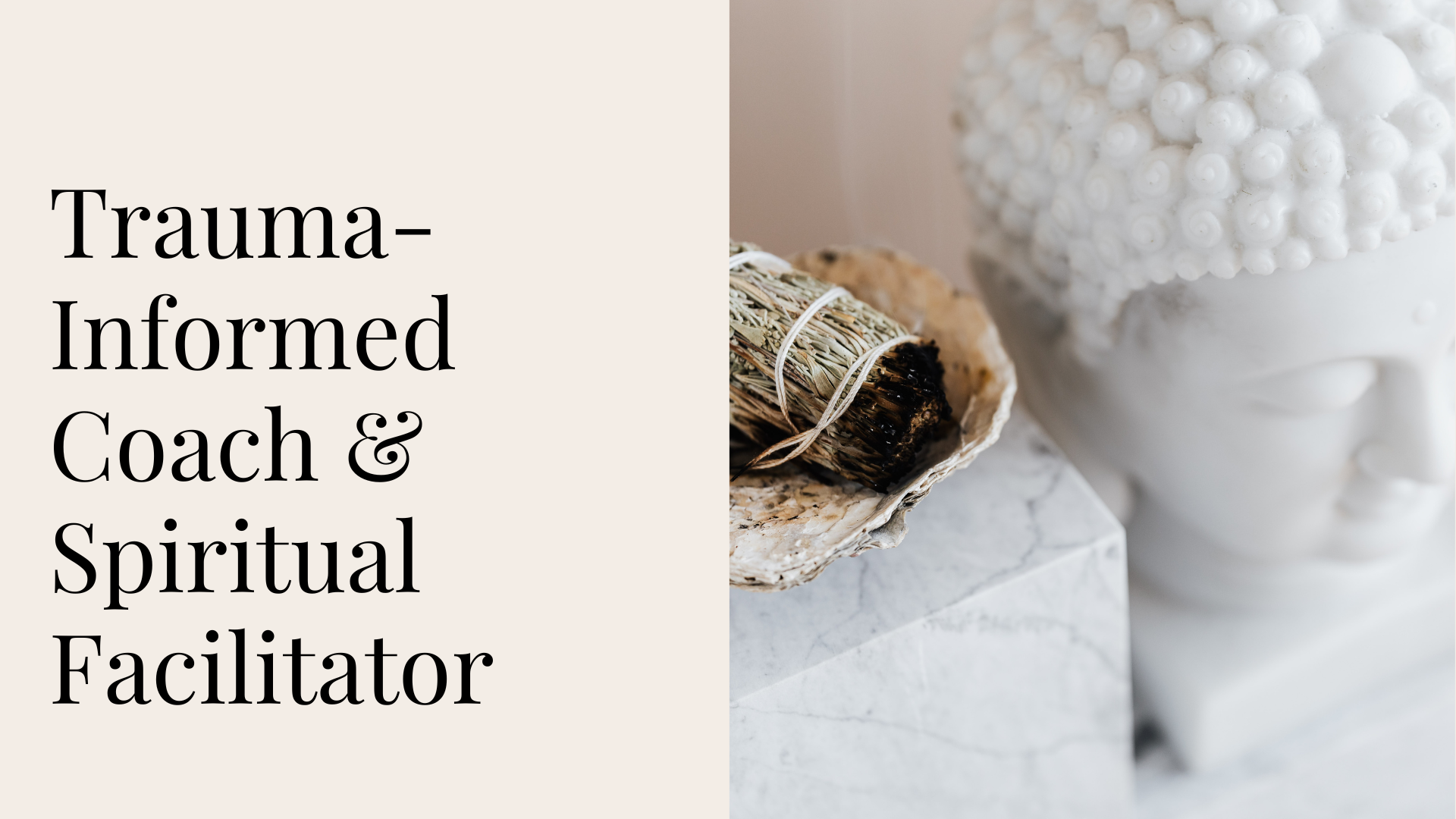get STARTED


Welcome to your online learning journey!
Here, you will find all of the course materials you need to complete the course. In some lessons, there may be a mini quiz and some may have workbooks or reference sheets for you to download in the resources section, which you will find at the bottom of each lesson.
There will be reflective assignments for you to complete that will help you to integrate and apply what you have learned. You do not have to submit your answers, but we strongly recommend that you take your time with each question, as they will deepen your understanding and help you to apply what you have learned in a practical, meaningful way.
We would also love for you to share your AHA moments with us in our Facebook group here so that we can celebrate with you!
If you have any questions about your course, please either reach out to us in the group or you can email us at [email protected].
When you have completed your course and all of the reflective assignments, please email us at [email protected], stating the course completed and how you wish your name to appear, and we will send you your certificate.
Happy learning!

YOUR COURSE
-
Welcome
- Welcome
- Start Here
- A Message From Anne-Marie
- Your Certification
- IAPC&M Accreditation & Core Competencies
- Mentor Calls
- Book Suggestions
- Additional Video Resources
- Reflective Assignment
-
Introduction to Becoming Trauma-Informed
- Module Objectives
- Introduction to Trauma for Trauma-Informed Coaches
- Essential Skills for Trauma-Informed Coaches
- Trauma – An Emerging Field in Coaching
- Defining Trauma
- The Difference Between Trauma & Distress
- When Emotional Impact Turns to Trauma
- My Favourite Researchers & Authors
- Mindset & Positive Psychology
- Reflective Assignment
- What is Trauma – End of Module Quiz
-
The Different Types of Trauma
- Module Objectives
- The Different Types of Trauma
- Acute, Chronic & Complex Trauma Scenarios
- Signs & Symptoms of Trauma
- Why Trauma Survivors Simply Can’t ‘Get Over It’
- Adverse Childhood Experiences (ACEs)
- The DSM5 Model
- The ICD10 Model
- The Impact of Relationships on Childhood Trauma
- The Facts & Myths of Trauma
- Reflective Assignment
- The Different Types of Trauma – End of Module Quiz
-
Introduction to the Stress Response & the Brain
- Module Objectives
- Introduction to the Stress Response
- Stress and the Developing Brain
- The Neurobiology of Trauma
- How to Explain the Neurobiology of Trauma to a Client
- The Integrated Brain
- Session Outline: Helping a Client Integrate Their Brain
- What Makes Some People More Resilient to Trauma Than Others?
- The Biology of Resilience
- Protective Factors to the Adverse Effects of Trauma
- Reflective Assignment
- Introduction to the Stress Response & the Brain – End of Module Quiz
-
Introduction to Brain Science & Memory
- Module Objectives
- Introduction to Brain Science
- Memory & Negativity Bias
- Memory Reconsolidation: How the Brain Unlearns
- Memory Reconsolidation Example Sessions
- Reflective Assignment
- Introduction to Brain Science & Memory – End of Module Quiz
-
The Impact of Trauma on the Brain
- Module Objectives
- The Impact of Trauma on Implicit and Explicit Memory
- Cognitive Dissonance
- ACES Study & Brain Changes
- Trauma Survivors Have Symptoms Instead of Memories
- The Impact of Trauma on The Brain
- The Pleasure/Pain Reward Centre
- Trauma & Limiting Beliefs
- Masterclass
- Reflective Assignment
- The Impact of Trauma on the Brain – End of Module Quiz
-
Generational Trauma & Epigenetics
- Module Objectives
- Epigenetics & Trauma
- Nature V Nurture
- Generational Trauma
- Have You Inherited Trauma?
- Inherited Trauma Checklist
- Rachel Yehuda – Research on Generational Trauma
- Generational Trauma & Internal Family Systems (IFS)
- Masterclass
- Reflective Assignment
- Generational Trauma & Epigenetics – End of Module Quiz
-
Dysfunctional Families & the Trauma Matrix
- Module Objectives
- Family Types
- Dysfunctional Families
- The Family ‘Story Line’ Versus the Family ‘Reality’
- The Trauma Matrix
- The Family Rules, Labels, Patterns & Beliefs
- Releasing Family Patterns
- Survival Traits
- How to Overcome Survival Traits
- Reflective Assignment
- Dysfunctional Families – End of Module Quiz
-
Archetypes & Inner Child
- Module Objectives
- The Primal Wound
- Shame, Blame & Guilt
- Trauma Narratives
- Understanding Archetypes
- The Hero’s Journey
- Working with the Inner Child
- Embodiment of Archetypes
- Working with Archetypes in Coaching
- Reflective Assignment
- Archetypes & Inner Child – End of Module Quiz
-
Schemas, Attachment Styles & Transference
- Module Objectives
- Schemas & Rewriting Negative Beliefs
- Attachment Theory
- Attachment Styles & How They Shape Adult Relationships
- Relational & Attachment Trauma
- How to Recognise an Attachment Style
- Overcoming Insecure Attachment
- Cultivating Earned Secure Attachment
- Transference, Projection & Transactional Analysis
- Attachment & Commitment Theory (ACT)
- Reflective Assignment
- Attachment Styles – End of Module Quiz
-
Mind/Body Regulation
- Module Objectives
- The Mind/Body Connection
- Trauma Stored in the Body
- The Rise of Somatic Therapies
- Candace Pert – Neuropeptides
- Reflective Assignment
- Mind/Body Regulation – End of Module Quiz
-
Understanding the Nervous System & Self-Regulation
- Module Objectives
- The Nervous System
- Understanding the Role of the ANS
- The Three Different States of the ANS
- The Sympathetic Nervous System
- The Parasympathetic Nervous System
- Dr Stephen Porges – Neuroception
- Emotional Management & Self-Regulation
- How to Work With Hyper & Hypo Clients
- Reflective Assignment
- Understanding the Nervous System & Self-Regulation – End of Module Quiz
-
Polyvagal Theory, Window of Tolerance & Survival Types
- Module Objectives
- Overview of the Theories
- Polyvagal Theory & Three Nervous System States
- The Vagus Nerve in More Detail
- The Window of Tolerance
- Pete Walker’s 4F Survival Types
- Using Polyvagal Theory with Clients
- Using Window of Tolerance with Clients
- Exercise Fluctuation, Vagus Regulation
- Reflective Assignment
- Polyvagal Theory, Window of Tolerance & Survival Types – End of Module Quiz
-
Trauma-Informed Coaching
- Module Objectives
- What is a Trauma-Informed Coach?
- Life Coaching Skills
- Ethical Responsibility & Working on Your Own Trauma
- Vicarious Trauma & Self-Care
- Creating Alliances and Knowing When to Refer a Client
- Preparing for the Work
- The Power of a Bottom-Up Approach
- The Lens of Exploration
- Post-Traumatic Growth (PTG)
- Applying PTG in Coaching
- Create Commitment
- How to Avoid Re-Traumatisation
- How to Explain Trauma to a Client
- Trauma-Informed Coaching Scenarios
- Creating a Trauma-Informed Toolbox
- Important Points to Remember
- Reflective Assignment
- Trauma-Informed Coaching – End of Module Quiz
-
Trauma-Informed Coaching Skills
- Module Objectives
- Intuitive Listening
- Exercise: Levels of Listening
- Triggers, Boundaries & Soothing Strategies
- Connecting Symptoms to Triggers
- Release, Reframe & Redirecting
- Imprints & Universal Core Emotional Needs
- Maslow’s Hierarchy of Needs
- Clean Language
- Trauma-Informed Coaching Competencies
- Reflective Assignment
- Trauma-Informed Coaching Skills – End of Module Quiz
-
Conversations on Suicide
- Module Objectives
- Understanding Suicide
- Risk Levels & Warning Signs
- Suicide Prevention
- Reflective Assignment
-
Graduation
- Final Assessment
- Certification
- BONUS: Website Offer